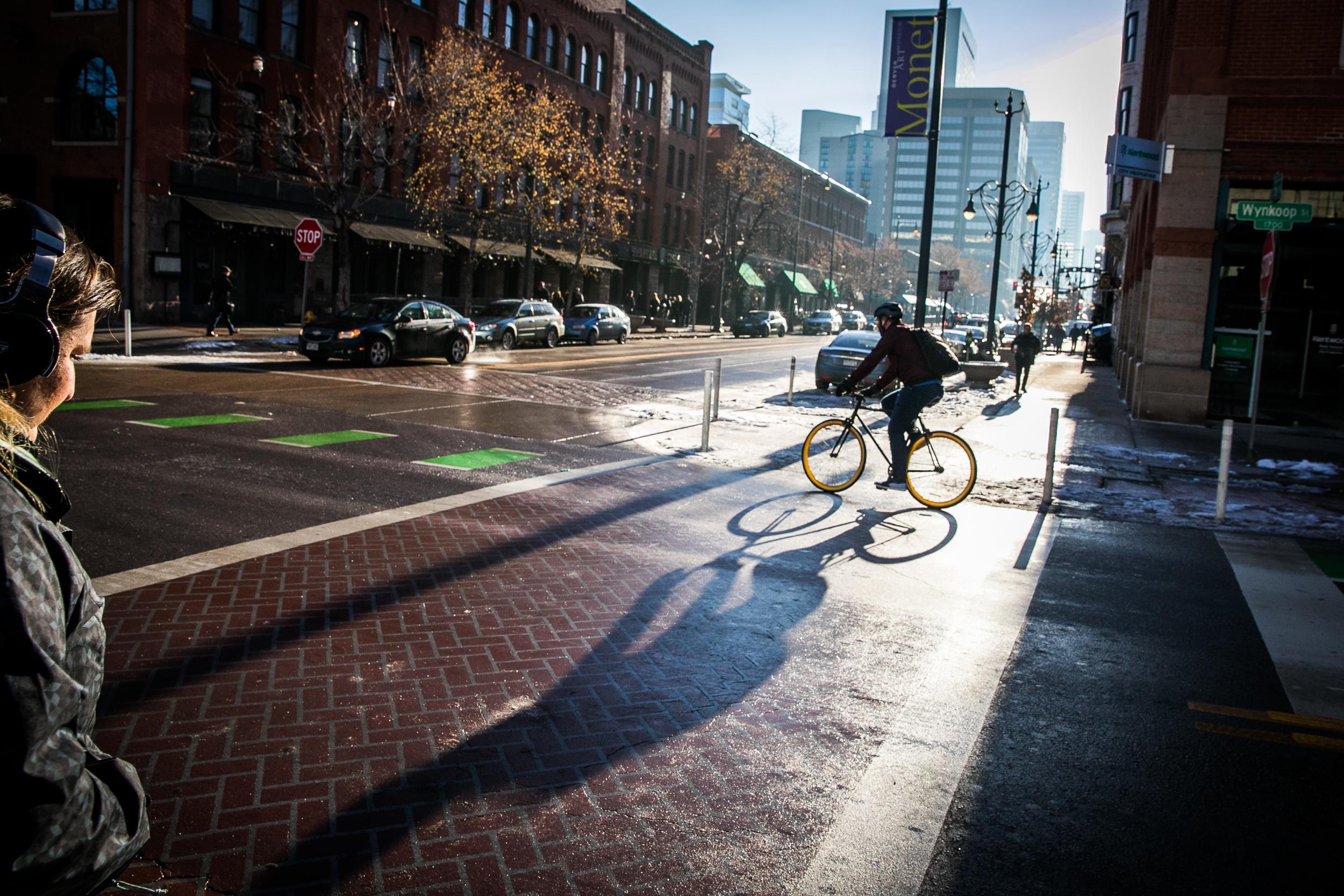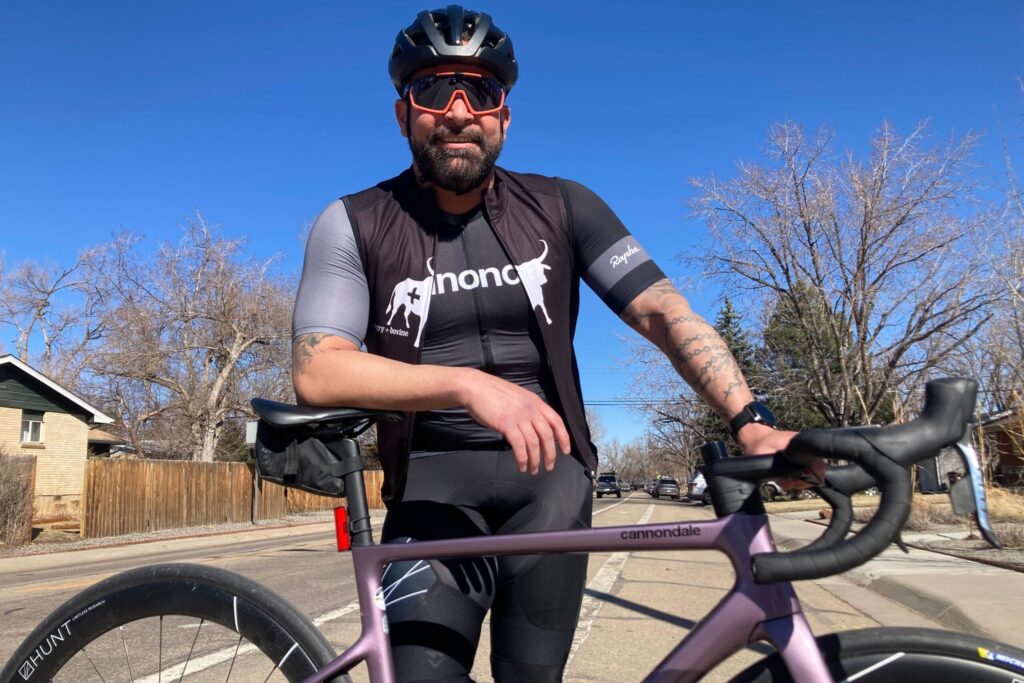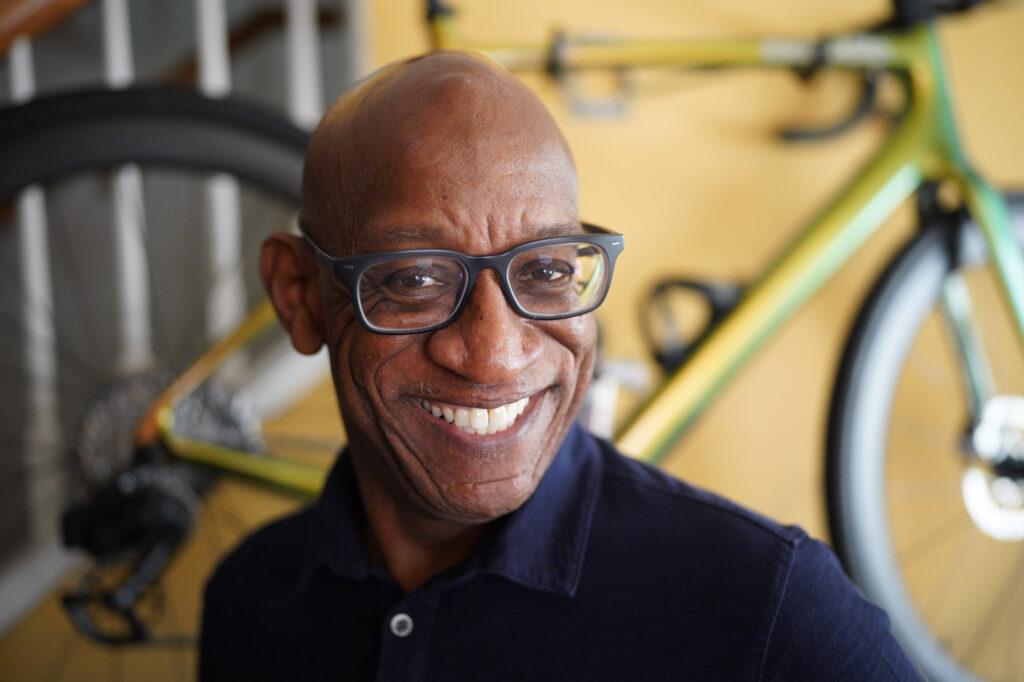
Massimo Alpian was blazing down a road above Boulder on his bicycle. Three cyclists in front of him, who were white, shot through a stop sign. Alpian, who identifies as brown, followed their lead.
“I rolled right through, right around the same speed, and was pulled over and ticketed,” Alpian said.
Alpian isn’t sure whether he was ticketed because of his brown skin. But he thinks it’s a strong possibility.
“I felt more confused as to why I was being targeted and no one else was,” he said. “If I was doing something blatantly egregious, sure. I'd feel bad that maybe I was breaking the law or putting other folks at risk. But this one was a bit confusing.”
That encounter was years ago, but it’s still on top of Alpian’s mind. It’s a key reason why he supports a bill in the Colorado Legislature that would allow cyclists to roll through stop signs at empty intersections and treat stoplights like stop signs.
Bill sponsors and cycling advocates say the proposed legislation to allow what’s often referred to as “Idaho stops” — named after the first state to enact the law — would help cyclists limit the amount of time they spend at intersections.
Statistics show those are the most dangerous places to be on a bike. Data from states with such laws, including Idaho and Delaware, suggest the change helps reduce crashes.

The bill would also give police one less reason to harass people of color, Alpian said.
“This gives us an extra layer of security,” he said.
Both the Colorado House and Senate have approved the bill, which will go to Gov. Jared Polis’ desk once the House signs off on Senate amendments. A spokesman for Polis did not say whether he will sign the bill.
CPR News couldn’t collect bicycle stop and citation data in time for this report. But journalists and academics elsewhere have found racial disparities in police enforcement of cycling laws in Winnipeg, Tampa, Florida and other major cities.
Other cyclists of color in Colorado who've testified in support of the bill say they’ve been targeted by police, too.
Marcus Robinson, who is Black and started the nonprofit Ride for Racial Justice, said he was a teenager when he was pulled over by police while on his bicycle for the first time.
Robinson and a friend were riding their new 10-speed bikes from their Park Hill neighborhood to the old Celebrity Sports Center on Colorado Boulevard when they heard a siren and saw lights flashing. Two officers accused them of stealing the bicycles.
At the time, Robinson said he didn’t know what was happening. Now, some 50 years later, the episode weighs on his mind.
“The more I started reliving it, the madder I'm getting now,” he said in an interview. “That was just a ruse to harass us. Period.”
Since then, he told legislators, he’s been pulled over by police more than 10 times over his decades in the bike saddle. Most recently, about six years ago, he was riding with four white friends up a canyon outside of Boulder. One of those friends, Rick Greenleaf, said a police officer approached the group and tailed Robinson’s back wheel for the last mile up the road.

“We got the sense he was waiting for Marcus to make a mistake,” Greenleaf said. “I didn't see him doing that to any of the other riders on the ride. It was just Marcus. And it was just kind of a strange experience.”
Robinson says the officer ultimately pulled him over and told him he was riding too close to the center of the road. And then, he said, the officer threatened to arrest him.
“I wasn’t doing anything that my colleagues weren’t doing,” Robinson said. “We were all riding together. We weren't impeding traffic. We weren't a hazard … I hated it. And it just pissed me off.”
Robinson also hopes the safety stop bill will help keep police off his wheel. He said he’s not going to stop riding.
“There is nothing like the freedom of just riding your bike. And if you take your hands off the wheel and you're doing it with no hands, you’re just kind of cruising, that is just the best,” he said. “It's the best. And then when somebody interrupts it, it just ruins your whole day.”
Alpian, the Boulder cyclist, has high hopes for the bill, too. But even if the bill is signed into law, he worries that drivers who aren’t made aware of the change will target cyclists who they think are breaking rules. He’s been harassed by racist and homophobic drivers before, he said, including one incident where a driver used a racist slur and challenged him to a fight.
“I was scared to get on the bike again the next day,” Alpian said. “But I did.”








